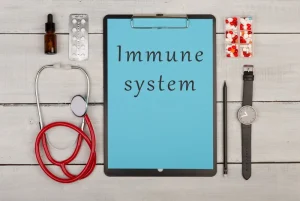
We can help find the right treatment for you or your loved one – even if it’s not ours! Alcohol tolerance tends to decrease as we age due to changes in our bodies as we get older, such as reduced liver function and decreased muscle mass. This is because men naturally produce a greater amount of this ADH enzyme than women do, leading to higher rates of tolerance.
- Research suggests that the more alcohol a person consumes, or the more frequently it is consumed, raises their likelihood of developing cancers such as breast, head and neck, oesophageal and more.
- Many people are pleasantly surprised to discover an increase in clarity or a decrease in headaches and digestive issues when they stop consuming alcohol.
- It is difficult to establish a full picture of the prevalence of alcohol intolerance, though.
- If you’ve had a severe allergic reaction to a certain food, wear a medical alert bracelet or necklace to let others know you have an allergy, in case you’re unable to communicate during a severe reaction.
- In addition to these genetic factors, recent discussions have emerged about a potential link between long COVID and alcohol intolerance.
Sudden Alcohol Intolerance? Here’s What You Need to Know
- “The wheezing and nasal/sinus symptoms in particular are due to the release of sulphur dioxide gas causing airway irritation,” Dr Watts explains.
- Do you suffer from terrible hangovers or feel unwell after drinking just a small amount of alcohol?
- Furthermore, genetic counseling can help individuals identify potential comorbidities or co-occurring genetic conditions that may influence their alcohol tolerance.
- By identifying these comorbidities, individuals can seek appropriate treatment and support to address both their alcohol-related problems and any co-occurring conditions.
- Yes, someone with alcohol intolerance has a higher risk of driving drunk because their body processes alcohol inefficiently.
- However, if you are sensitive and draw a cork with visible mould, you potentially expose yourself to a dose of allergen.
- Epigenetic marks, such as DNA methylation and histone modifications, can influence gene expression without altering the underlying DNA sequence.
If you are experiencing symptoms of alcohol intolerance, it’s important to talk to your healthcare provider about possible causes and treatment options. If you don’t consume alcohol, you won’t experience the horrible symptoms of alcohol intolerance. Just because you have alcohol intolerance doesn’t prevent you from being an alcohol addict.
Changes to health and functions with age

This kind of reaction is far from your typical experience, and now you’re left wondering why your body is suddenly unable to handle something it has always tolerated. It won’t go away, but by taking some precautions, you can avoid the symptoms and enjoy a healthy, active life. Fortunately, alcohol addiction treatment is available, and it is entirely possible that you have a treatment center in your town.
Implications for Alcohol Tolerance:
If you suffer from alcohol intolerance, it is important to understand which ingredient of the drink causes a problem for you (such as the alcohol itself or is it the wheat, the gluten in the wheat, fruit or yeast?). With this knowledge, you can choose alternatives to help you avoid the symptoms of alcohol intolerance. sensitivity to alcohol If you’re intolerant to alcohol, you might experience certain signs and symptoms that occur after drinking. Alcohol intolerance does not mean you will become intoxicated faster than others; it simply means that you will have a negative reaction to alcohol. A person’s tolerance may also change over time due to a decline in body mass in older adults.
The Metabolic Tolerance Process
To begin, alcohol intolerance is a genetic condition characterized by the inability to process alcohol efficiently. Dr. Steven explains that there are two enzymes involved in metabolizing ethanol, an intoxicating agent that exists in different amounts across wine, beer, and spirits. Most people who suffer from alcohol intolerance assume that maybe they got drunk too quickly, but in reality, it’s their bodies that don’t have the right enzymes that help break down the beverage. People with higher alcohol tolerance can consume larger amounts of alcohol before experiencing its effects, while those with lower tolerance will feel the effects of alcohol more quickly and with smaller amounts. One future direction in genetic research on alcohol tolerance is the exploration of gene-environment interactions.
How do I know if I have an allergy or an intolerance to alcoholic beverages?
This can increase the likelihood of an intolerance forming, which is known as leaky gut. Alcohol intolerance occurs when the body does not have the correct enzymes to break down the toxins in alcohol. In 2017, researchers explored how if a person consumes alcohol chronically and in larger quantities, it may promote inflammation throughout the body, resulting in widespread symptoms. Although alcohol intolerance usually isn’t a serious issue, you may want to discuss it with your doctor at your next appointment. In rare instances, an unpleasant reaction to alcohol can be a sign of a serious underlying health problem that requires diagnosis and treatment. Terms of UseThe information on this website is for general information purposes only.

Case Studies
This intolerance is usually characterized by flushed skin, Drug rehabilitation stuffy or runny noses, abdominal pain, and borderline-instantaneous headaches. If you have found out that you are intolerant to an ingredient found in alcohol, changing your diet need not be daunting. Yorktest Nutritional Therapists are here to help you understand how to optimize your food choices.

- According to a study by the American Journal of Clinical Nutrition, approximately 7-10% of the global population experience some form of alcohol intolerance.
- People often confuse alcohol intolerance and alcohol allergy, but they aren’t the same condition.
- The helpline at AddictionResource.net is available 24/7 to discuss the treatment needs of yourself or a loved one.
- If you do drink a beverage that causes a mild reaction, over-the-counter antihistamines may help relieve symptoms.
Similarly, beer and cider can pose problems due to their high sulfite content and grain derivatives. By steering clear of these beverages, you can reduce the risk of uncomfortable symptoms. These tests can be extremely helpful in identifying sensitivities to common ingredients found in alcoholic beverages.



